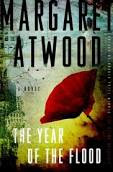 The year is C.E. 131. The place is Betsha’al, a small village in the Holy Land. Fifteen-year old Tamar is a potter’s apprentice to her father and over the years she has become a gifted artist. Her exacting father rejects some of her creative designs and Tamar hides many of her creations in a secret cave. Although she is betrothed to a young man, Yitzak, she has no feelings for him. Throwing pots is the driving force in her life.
The year is C.E. 131. The place is Betsha’al, a small village in the Holy Land. Fifteen-year old Tamar is a potter’s apprentice to her father and over the years she has become a gifted artist. Her exacting father rejects some of her creative designs and Tamar hides many of her creations in a secret cave. Although she is betrothed to a young man, Yitzak, she has no feelings for him. Throwing pots is the driving force in her life.One evening when Tamar goes to fetch water for the family, she is accosted by a Roman soldier. She manages to pull away from his grasp just as a kind stranger named Yacob happened to be walking by. Yacob wraps Tamar in his robe and takes her home. When her parents see her torn clothes they imagine the worst. Her mother wails and cries.
“I’ve always taught you to be careful and modest. . . I teach you to be plain and unprovocative, and so you disgrace us with a pig of a Roman soldier?”
One day Roman soldiers enter Betsha’al and arrest Tamar’s betrothed, Yitzak, for treason against Hadrian, the Emperor of the Roman Empire. They murder Yitzak and drag his body through the village. With her future husband gone, Tamar has little chance for marriage. She finds herself thinking of Yacob, but she believes that a relationship with the man who saved her from the Romans is not possible.
As violence against the Jews escalates in the small villages of the region, Tamar’s father knows that if they are to escape death at the hands of the Romans, he, his family, and fellow villagers must flee to caves in the wilderness. With only the possessions that they can carry, they set out on their long journey. Once there, Tamar feels compelled to return to Betsha’al and implores her father to leave. That night, when everyone else is asleep, Tamar quietly slips out of the cave and sets out for home where she must confront the horrors of the war and come to terms with the atrocities committed by
the Romans against the Jews.
Vessel of Fire by Elena Tucker is the first book of her “Time Pieces” historical fiction trilogy. It chronicles the life of a family during the Bar-Kochba rebellion of the Jews against the Romans. While the story takes place during a single year, Tucker explains in her author’s notes that the actual time period stretched over half a decade. “Fighting was intense all over Judea,” Tucker writes, “centering around Jerusalem where the Tenth Legion was stationed. . . It is estimated that 400,000 untrained Jewish men gathered in a well-orchestrated revolt that began a few miles west of Jerusalem, and ended with the eventual ‘Redemption of Israel.’ In triumph, a new Jewish calendar was begun, government restructured and new currency issued.”
Tucker cleverly presents the compelling tale of Tamar and her family side-by-side with a current-day story of Dr. Lemuel Fort, one of the world’s leading Near Eastern archeologists on a dig in the ancient city of Beit Sha’al. Lem and his wife, Emily, have experienced a recent tragedy and are trying to repair their relationship. As Lem and his crew unearth the artifacts of past lives, Tucker’s story streams seamlessly back in time to Tamar and her family. At the same time, Lem cautions his students not to forget the people who made and used the relics that they retrieved.
“The problem with artifacts” says Lem, “is that we forget what they really are. . . what we’ve forgotten is who made these lamps: a man just like me or maybe some of you. Maybe he was shy. Maybe he dreamt of women as he worked the clay and sang whatever songs were popular in his day.”
Tucker’s characters have depth and they spring to life through the historical tapestry that she weaves. “What is most important to me,” says Tucker, is that we understand the flesh-and-blood-ness of ancient peoples; they were not merely abstractions or myth. They were smart, feeling, loving people who—however different their circumstances—were folks who struggled and enjoyed life just like you or I.”
This is a story of the ancient and the contemporary, side-by-side, both struggling for the survival of their families. The book flows seamlessly back and forth through the ages, with characters whose cores resonate with the struggles of a common humanity—two cultures united by the thread of time.
Tucker is an award-winning columnist and staff writer for The Boerne Star. She has also penned a historical novel about Magellan, West About, available through Amazon.com. The Vessel of Fire and Tucker’s second and third books of her “Time Pieces” trilogy, Vessel of Hope and Vessel of Strength, are available as Kindle editions through Amazon.com for the very nominal price of $ 2.99 each, a real bargain for such good reads.
This review was published in the Boerne Star on March 1, 2013








